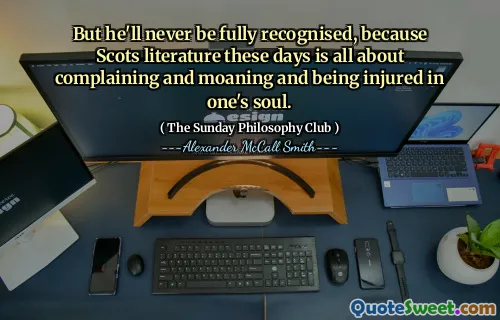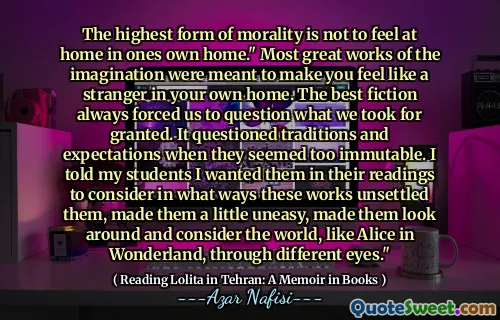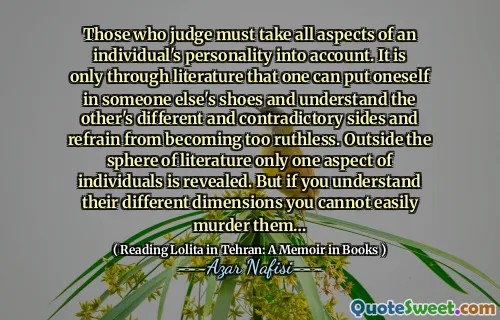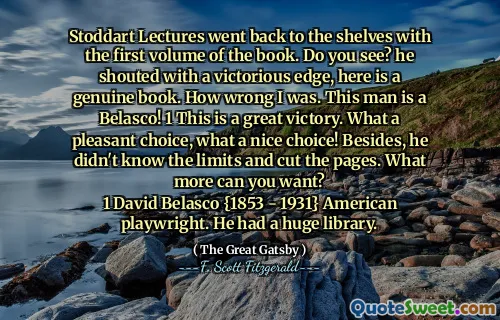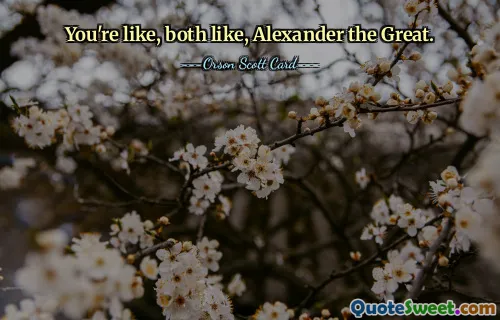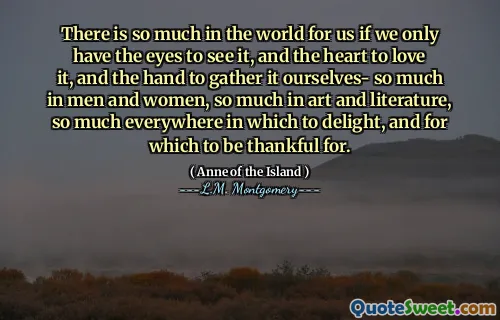
I didn't want it to be a book that made pronouncements.
This quote highlights a thoughtful approach to writing and storytelling, emphasizing a desire to create something authentic and genuine rather than authoritative or instructive. Often, writers and creators may feel pressured to deliver a message or to present ideas that seem dictatorial in nature, potentially alienating their audience or limiting the openness of interpretation. Instead, the speaker here expresses a preference for transparency and humility—aiming to share thoughts and narratives without positioning themselves as the ultimate voice of truth.
This mindset encourages a more nuanced understanding of literature and art, where the goal is to evoke reflection and foster engagement rather than impose beliefs. It promotes the idea that stories and ideas should serve as windows into different experiences and perspectives, not as podiums for definitive truths. Such an approach can create a more inclusive and inviting environment for readers, allowing them to draw their own conclusions, question assumptions, and connect personally with the material.
Moreover, this perspective might reflect an acknowledgment of the complexity inherent in the human condition. No single author or creator holds all the answers; instead, their work becomes a conversation starter or a mirror, capturing the shades of human experience rather than offering monolithic statements. This attitude can lead to more honest and layered works, encouraging curiosity and humility.
Overall, the quote celebrates the power of subtlety and the importance of leaving room for interpretation, fostering a space where ideas can breathe and evolve without the constraints of didacticism. It underscores the beauty of storytelling that respects the audience’s intelligence and invites engagement on a deeper level.






